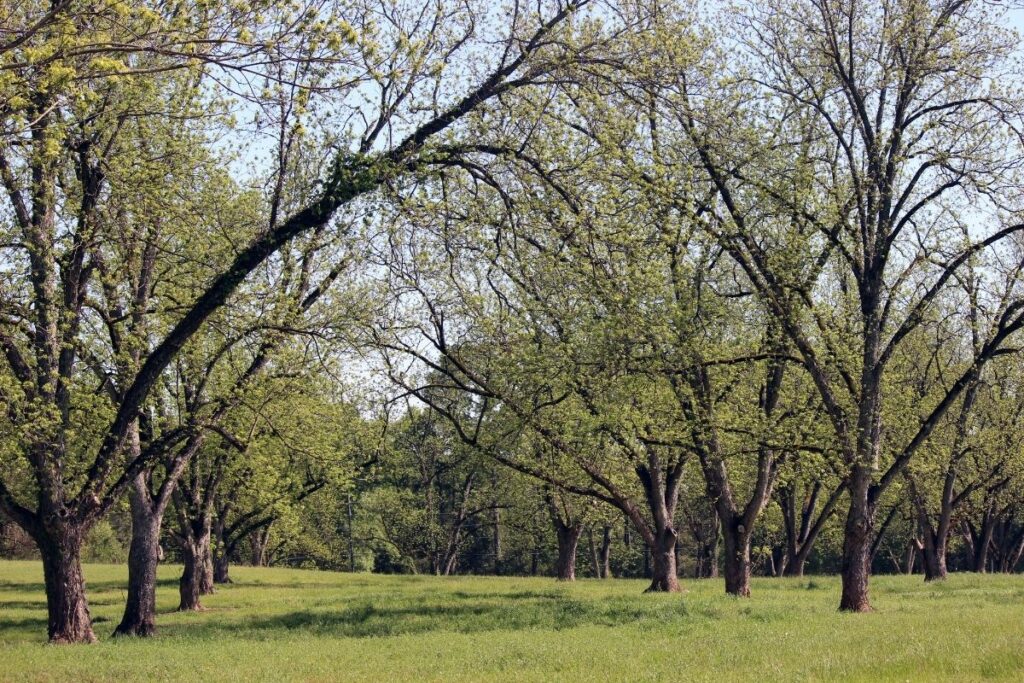Let's talk pecans. Those buttery, rich nuts that elevate any pie, cookie, or even a simple salad. But can you, a resident of Iowa, cultivate these majestic trees and enjoy the fruits (literally) of your labor? The question "Will pecan trees grow in Iowa?" is a complex one, a whisper on the wind rustling through the cornfields, a yearning for a taste of the South in the heartland. The answer, much like Iowa's weather, is nuanced.
While Iowa isn't traditionally considered pecan country, the dream of growing pecan trees in the Hawkeye State isn't entirely out of reach. The changing climate, coupled with advancements in horticulture, has opened up possibilities that were previously unimaginable. But before you envision a pecan orchard shading your farmhouse, there are crucial factors to consider. This journey is not for the faint of heart, but for the determined gardener with a vision and a love of all things nutty.
Pecan trees are native to the Mississippi River Valley, stretching south from Illinois. Historically, Iowa's colder winters posed a significant challenge to pecan cultivation. The trees require a long growing season with ample heat to produce nuts, conditions not always guaranteed in Iowa's variable climate. However, with some strategically chosen cultivars and proper care, success is possible. This means selecting hardy varieties adapted to northern climates, like the 'Major', 'Witte', or 'Kanza', which are known for their cold hardiness.
The importance of understanding your specific microclimate cannot be overstated. Iowa's diverse landscape, from the rolling hills of the east to the flatter plains of the west, creates microclimates that can significantly impact pecan tree growth. Factors like soil drainage, sun exposure, and wind protection all play a role. Conduct a soil test to ensure it meets the tree's requirements. Pecan trees prefer well-drained, slightly acidic soil. They also need full sun, meaning at least six hours of direct sunlight daily.
So, why bother with the potential heartache of growing pecan trees in a less-than-ideal climate? The answer is simple: the unparalleled satisfaction of harvesting your own pecans. Imagine the crunch of a freshly picked pecan, still warm from the autumn sun, the buttery flavor exploding on your palate. It's a taste of accomplishment, a connection to the land, and a bragging right at your next potluck.
One benefit is the potential for fresh, homegrown pecans. Another is the aesthetic value these stately trees add to any landscape. And let's not forget the environmental benefits. Trees help sequester carbon dioxide, improving air quality and combating climate change.
If you’re ready to take the plunge, start with selecting a hardy variety. Then, choose a suitable planting location with well-drained soil and full sun. Plant in the spring after the last frost, and water regularly during the first few years to establish a strong root system.
Advantages and Disadvantages of Growing Pecan Trees in Iowa
| Advantages | Disadvantages |
|---|---|
| Fresh, homegrown pecans | Longer maturation period compared to southern states |
| Aesthetically pleasing addition to the landscape | Risk of frost damage during late spring or early fall |
| Environmental benefits (carbon sequestration, improved air quality) | Requires specific soil conditions and careful site selection |
FAQ: Will pecan trees survive Iowa winters? With proper care and selection of hardy varieties, yes. Will they produce nuts? This depends on various factors, including the cultivar, weather conditions, and proper care. How long does it take for a pecan tree to bear nuts? It can take several years, sometimes up to a decade.
In conclusion, while growing pecan trees in Iowa presents challenges, it's not an impossible dream. With careful planning, variety selection, and consistent care, you can increase your chances of success and enjoy the rewards of fresh, homegrown pecans. The journey may be long, but the satisfying crunch of that first home-grown pecan will make it all worthwhile. So, embrace the challenge, do your research, and plant a pecan tree – a testament to your resilience and a delicious addition to your Iowa landscape. Don’t be afraid to reach out to local experts and fellow gardeners for advice and support. Happy growing!
When Should I Plant Pecan Trees at Keisha Burton blog - Trees By Bike
How Fast Do Pecan Trees Grow - Trees By Bike
will pecan trees grow in iowa - Trees By Bike
CC Complete Cream Pecan SPF30 40ml All Skin Types - Trees By Bike
10 Best Nut And Fruit Trees For Clay Soil - Trees By Bike
Pin on Butterfly garden - Trees By Bike
Growing pecan nuts cultivars soil prep planting - Trees By Bike
AM pecan tree recommendations for Texas Best to grow a Type 1 with - Trees By Bike
will pecan trees grow in iowa - Trees By Bike
Pecan Pralines are a Southern Delight - Trees By Bike
The Definitive Guide To Growing Pecan Trees From Seed A Comprehensive - Trees By Bike
Do Pecan Trees Grow Up North at Robert Aguirre blog - Trees By Bike
will pecan trees grow in iowa - Trees By Bike
Growing Pecan Trees from Seed - Trees By Bike
Pecan Brittle Gift Tub 14oz - Trees By Bike













